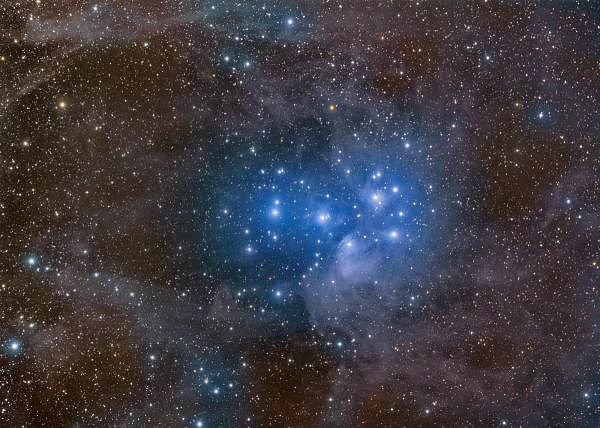
Astronomers, using X-Ray and radio telescopes, including India's Giant Metrewave Radio Telescope (GMRT) in Pune, have discovered the biggest explosion seen in the universe since the Big Bang from a supermassive black hole at the centre of a faraway galaxy.
The study, published in the Astrophysical Journal, noted that the explosion occurred in the Ophiuchus galaxy cluster which is at a distance that would take even light 390 million years to reach from the Earth.
It said the blowing up released five times more energy than the previous record-holding explosion in the galaxy cluster MS 0735+74.
Also read — Earth finds new mini-moon about the size of car
"We've seen outbursts in the centres of galaxies before but this one is really, really massive. And we don't know why it's so big," said study co-author Melanie Johnston-Hollitt from Curtin University in Australia.
"But it happened very slowly -- like an explosion in slow motion that took place over hundreds of millions of years," Johnston-Hollitt said.
They said the blowing up was so powerful that it punched a cavity in the cluster plasma -- the super-hot gas surrounding the black hole.
Simona Giacintucci, the lead author of the study from the Naval Research Laboratory in the US, said the blast was similar to the 1980 eruption of Mount St. Helens, which ripped the top off the mountain.
"The difference is that you could fit 15 Milky Way galaxies in a row into the crater this eruption punched into the cluster's hot gas," Giacintucci said.
Johnston-Hollitt said the cavity in the cluster plasma had been seen previously with X-ray telescopes.
However, astronomers dismissed the idea initially that it could have been caused by an energetic outburst since it would have been too big.
"People were sceptical because of the size of the outburst. But it really is that. The Universe is a weird place," she said.
The scientists realised what they had discovered only after they looked at the Ophiuchus galaxy cluster with radio telescopes.
"The radio data fit inside the X-rays like a hand in a glove," said study co-author Maxim Markevitch from NASA's Goddard Space Flight Center in the US.
"This is the clincher that tells us an eruption of unprecedented size occurred here," Markevitch said.
According to Johnston-Hollitt, the finding is similar to discovering the first dinosaur bones.
"It's a bit like archaeology. We've been given the tools to dig deeper with low-frequency radio telescopes so we should be able to find more outbursts like this now," she said.